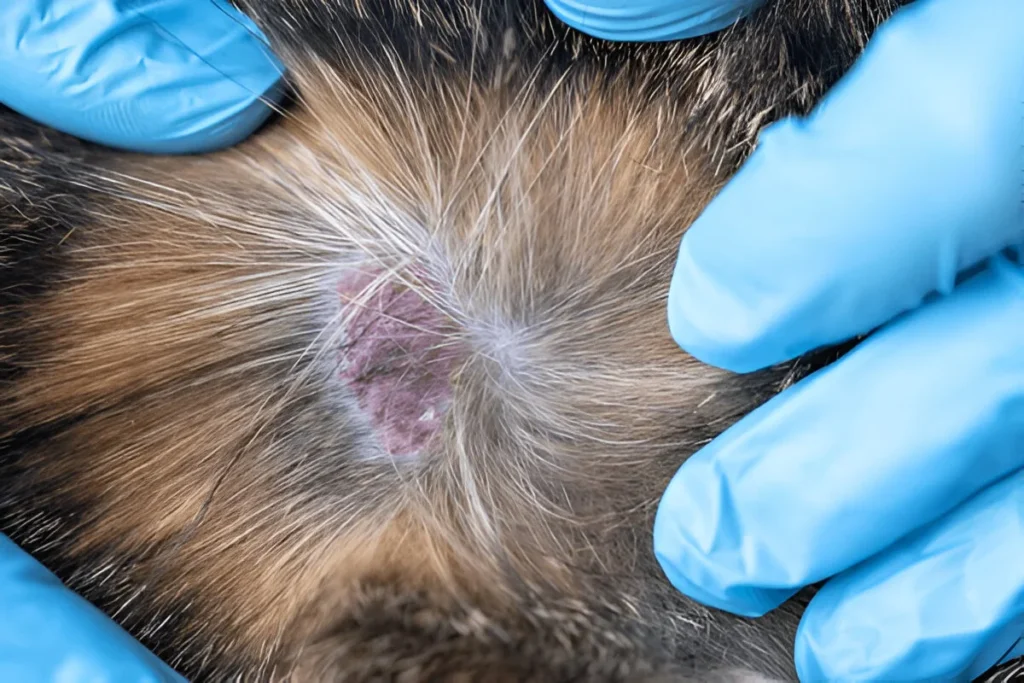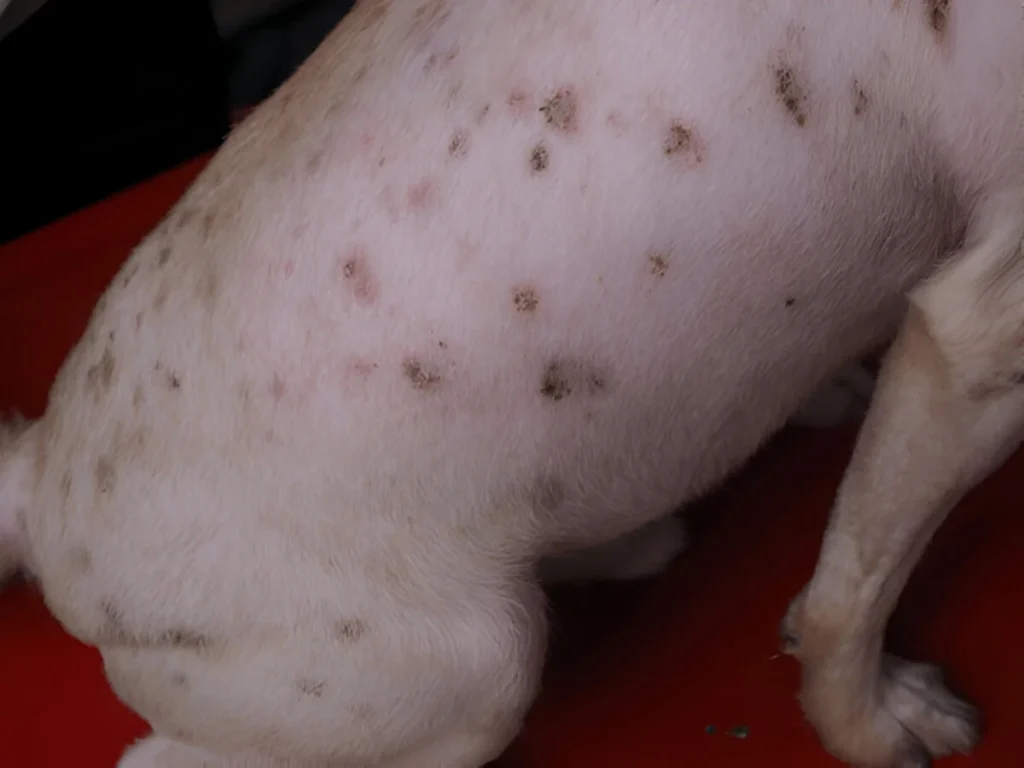-
Kutchina service center, Kolkata - 700010
Kutchina service center, Kolkata - 700010

Learn how to prevent common pet skin infections with expert-backed care tips, hygiene practices, and nutrition advice. Guidance inspired by veterinarians from the Best Pet Clinic in Kolkata to keep your furry friend healthy and itch-free.
Healthy skin is one of the strongest indicators of a pet’s overall well-being. Yet, many pet owners notice itching, redness, or flaky patches on their furry companions without realizing that these are early signs of skin infections.

Whether it’s due to allergies, poor grooming, or parasites, knowing how to prevent common pet skin infections is crucial for maintaining your pet’s comfort and happiness. These infections can affect both dogs and cats, and if ignored, they can quickly worsen and cause long-term discomfort.
Before you can prevent them, it’s important to recognize the common types:
Understanding which type your pet has can help you treat and prevent future issues effectively.
Pets can’t speak, but their skin often tells the story. Look out for these warning signs:
Spotting these early allows you to take action before things get worse.

Let’s dive into practical, pet-friendly ways to keep your companion’s skin healthy and infection-free.
Grooming isn’t just about appearance — it’s about health.
💡 Tip: Avoid over-bathing — too much washing can strip the skin of natural oils and lead to dryness or irritation.
Good nutrition plays a huge role in skin health.
A balanced diet strengthens the immune system, helping pets naturally fight infections.
Parasites are one of the leading causes of skin infections.
To effectively prevent them:
Preventing parasite buildup is key to keeping skin infections away.
Your home environment affects your pet’s health more than you think.
A clean environment limits the spread of bacteria and fungi.
Sometimes, even the most careful pet parents can’t spot hidden infections. Regular veterinary visits help detect early skin issues before they escalate.
During a checkup, your vet may:
If you notice persistent scratching or rashes, don’t delay — professional care ensures accurate diagnosis and long-term prevention.
Certain well-intentioned habits can backfire:
Always choose products specifically formulated for animals.
Just like humans, pets can have seasonal allergies that cause skin irritation.
Here’s how to handle them:
Allergy control is one of the most effective ways to prevent common pet skin infections.
Some home remedies can provide relief and prevent recurring infections:
⚠️ Note: Always check with your vet before trying home remedies, as certain natural ingredients can be harmful if misused.
Healthy habits make prevention easier than a cure.

Q1. What causes most pet skin infections?
They are commonly caused by parasites, poor hygiene, allergies, or nutritional deficiencies. Environmental factors like humidity can worsen them.
Q2. Can diet alone prevent skin infections?
Diet plays a major role, but grooming and parasite control are equally important. A holistic approach works best.
Q3. Are pet skin infections contagious to humans?
Some, like ringworm, can spread to humans. Maintaining hygiene and early treatment are essential.
Q4. How often should I bathe my pet to prevent infections?
Usually once every 3–4 weeks, depending on breed, coat type, and weather. Consult your vet for specific needs.
Q5. Can stress cause pet skin problems?
Yes. Emotional stress can lead to excessive scratching or licking, worsening skin irritation over time.
If your pet’s itching or redness persists despite preventive care, it’s time to consult a trusted veterinarian. They can perform detailed skin tests, identify root causes, and prescribe the right treatment plan to stop recurrence.
Expert-guided care not only resolves infections but also strengthens your pet’s long-term immunity and comfort.
Knowing how to prevent common pet skin infections empowers every pet owner to take charge of their furry friend’s health. With regular grooming, proper nutrition, and early intervention, your pet’s skin can stay soft, clean, and irritation-free.
For deeper concerns or recurring issues, seeking professional veterinary guidance ensures your pet enjoys a lifetime of comfort and health — because a happy pet truly begins with healthy skin.